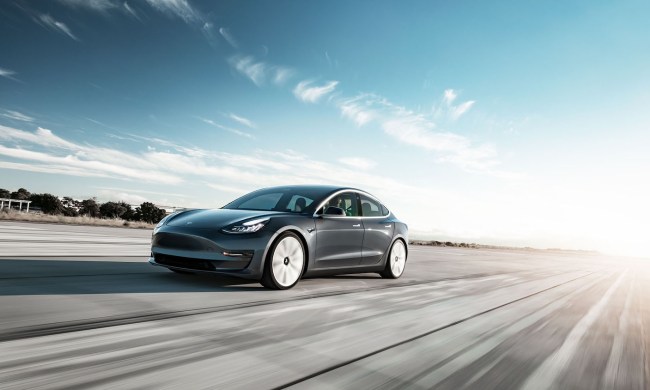Ford says it will delay the launch of its autonomous-vehicle services because of disruption caused by the coronavirus pandemic. It means the company’s self-driving taxi and delivery services, using technology from partner Argo A.I., will not arrive until 2022, a year later than originally planned.
The auto giant announced the decision during a call discussing its quarterly earnings on Tuesday, April 28.
Ford elaborated on its decision in a message to TechCrunch following the call, saying that in light of the challenges presented by the pandemic, it needs to “evaluate the long-term impact of COVID-19 on customer behaviors.”
It added: “Understanding customer behavior is a critically important part of building a new mobility service built around trust and making people’s lives easier.”
In other words, Ford now wants more time to research if and how the pandemic changes the way people interact with autonomous vehicles. It could be, for example, that there’s an uptick in demand for driverless taxis for fewer passengers as people move away from shared rides in a new age of social distancing. Or, as Ford points out, the current crisis may lead to a demand for new kinds of services using autonomous vehicles that we haven’t even thought of yet. For these reasons and others, the Detroit-based automaker wants more time to learn about customers’ feelings and needs regarding the technology.
In the meantime, Argo will continue to work on refining its autonomous technology to make it safer and more efficient. The Pennsylvania-based company has certainly attracted plenty of interest since its founding in 2016, with Ford getting in early with a $1 billion investment in 2017, spread over five years. Last year Volkswagen promised a further $2.6 billion in a deal set to give Argo a solid European presence.
Argo last year unveiled the third-generation of its autonomous car prototype, based on the Fusion Hybrid. Improvements included an enhanced sensor suite with new radars and cameras capable of detecting objects further away than the previous design.
Its driverless technology has already been used in a range of Ford-backed pilots that included delivery services for the likes of Walmart, Domino’s, and Postmates.
We’ve reached out to Ford and Argo to find out more about its decision to delay the launch of its self-driving services and we will update this piece when we hear back.
Ford isn’t the only car company that’s decided to delay autonomous-vehicle initiatives, with General Motors last year announcing it would miss its end-of-2019 deadline to launch a robo-taxi service as it needed to test its technology more thoroughly. Whether the COVID-19 pandemic causes a further delay remains to be seen.


